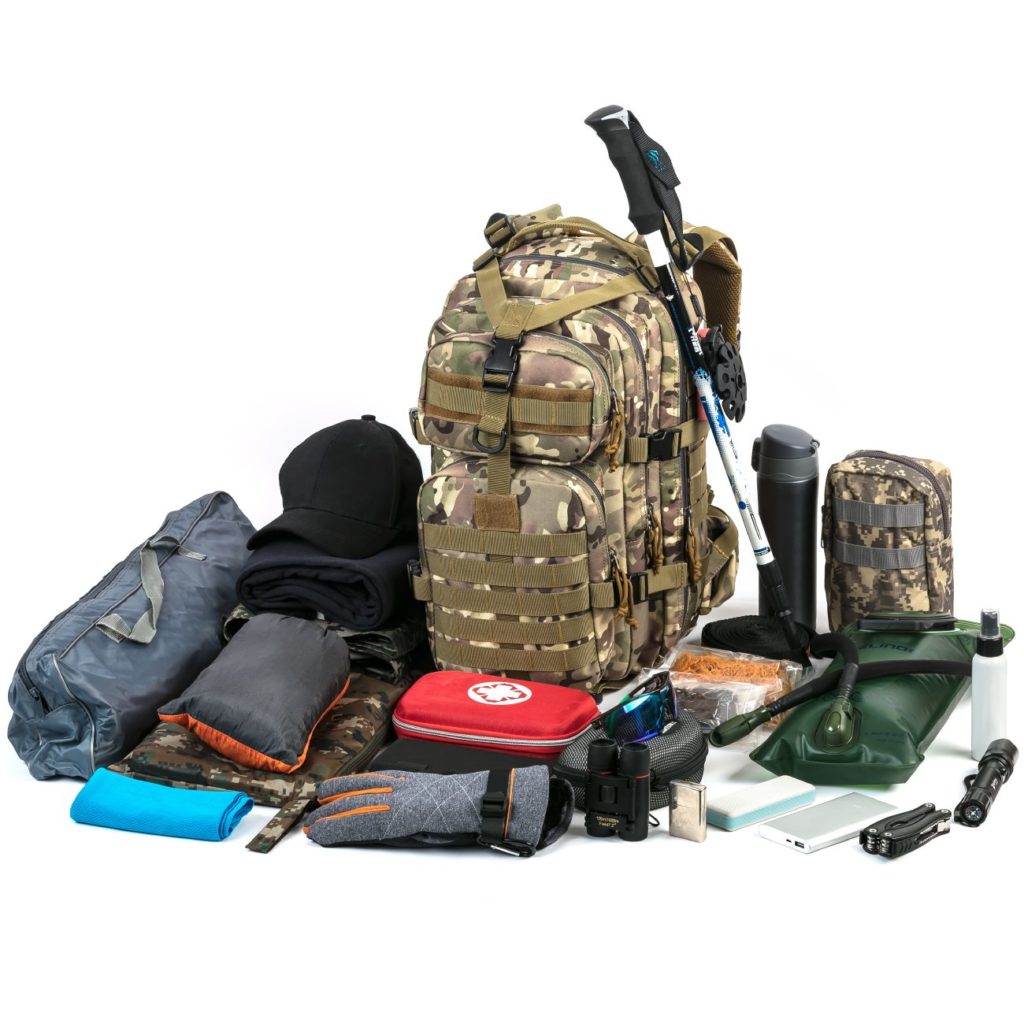What’s the Best Option?
One of the most common questions we get from our readers is whether they should shelter in place or leave for another location. This is a hard question to answer because there are so many dynamics that must be taken into consideration. First of all, the choice of whether to shelter in place or head for a bugout location will most definitely depend on the type of disaster you are facing. If it’s a category 5 hurricane that is heading for your coastal location, evacuating is almost always the right decision. However, a massive power outage or the aftermath of a major earthquake are frequently disasters that are best met by sheltering in place.
Things to Consider
Of course, another consideration is the type of personal protection and provisions you have on hand. If you don’t have the means to protect your family from marauders or your food supply is running low, bugging out might be your only option. Every situation needs to be evaluated on its own merit with consideration given to the feasibility of evacuation or bugging out.
If there’s a powerful hurricane heading in your direction, you’ll want to think about whether you have the time to make it to safety. Keep in mind that evacuation routes can often be crowded and slow-moving. Also, will you be able to get fuel for your vehicle? Hopefully, you prepared ahead of time and have a full tank of gas, but will that be enough to get you to safety?
Evacuation
Local governments will typically determine evacuation routes and will prioritize evacuation of area residents based on their level of assessed risk. It’s important to keep in mind that authorities might not evacuate all areas because evacuation routes can only handle a limited amount of traffic. For example, in the case of a major hurricane, individuals who live along coastal areas or in flood zones will be evacuated first, others are often advised to take cover or seek shelter at a local hurricane shelter. Just because your area hasn’t been issued instructions to evacuate doesn’t mean you’re not at risk. Anyone can evacuate, and making an early decision is usually in your best interest.
Many people remember the devastating effects of Hurricane Andrew which caused massive destruction in Homestead, Florida back in 1992. The town was destroyed and hundreds of thousands of individuals were left homeless. Prior to making landfall, wind speeds for Hurricane Andrew were thought to be 145 MPH, making it a Category 4 hurricane; however, when data was reviewed in 2002, the actual wind speed was found to be 165 MPH, making it a catastrophic category 5 hurricane.
Shelter In Place or Bugout?
It can be hard to know when or if you should evacuate and it is important for people to realize that even if they aren’t in an evacuation zone, they’ll still need to seek shelter. This is often at an area school or other facility that is built to withstand extreme weather and other catastrophic events. Of course, when you need to evacuate, it’s imperative that you have your bugout bag ready to go. Additionally, even if you plan on seeking safety at a local emergency shelter, you’ll still need to bring your bugout bag with you. These facilities generally provide only minimum accommodations, so it’s important to be prepared with water, snacks, and other essentials you’ll need to get by.
Some catastrophes, such as a terrorist attack, chemical spill, or civil unrest might mean evacuation is not a viable option. You should make plans to shelter in place if the need arises. With proper training and supplies, you can shelter in place for days, weeks, or even months.
Whether you need to shelter in place or bugout, being prepared is crucial to the safety and well-being of your family. We have a number of helpful lists here at Survival of the Prepped, all designed to assist you in preparing for whatever type of emergency comes your way. Print out these lists and start making your preparations today. Remember, even if you plan on sheltering in place, you still need to have an emergency bugout bag for every member of your family.
